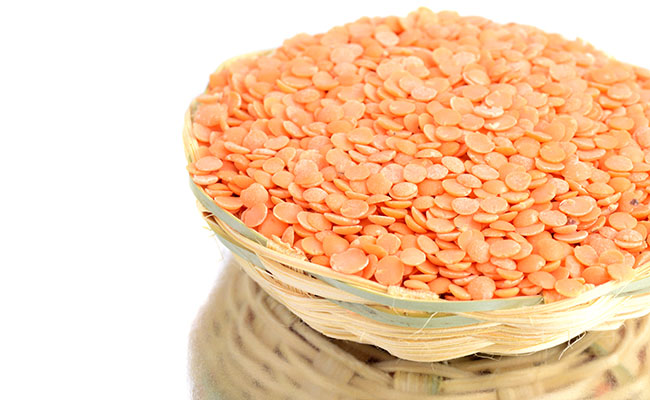
More pulse imports on govt table to cool prices
“The government is watchful of pulses imports as imported pulses are kept idle at ports,” said Commerce Minister Nirmala Sitharaman.
Source: PTI
 The Commerce Ministry on Thursday held a meeting with pulse importers to determine the quantity required to be imported in coming months and supplies in global markets
The Commerce Ministry on Thursday held a meeting with pulse importers to determine the quantity required to be imported in coming months and supplies in global markets
The government is examining the need to import more lentils to boost domestic supply even as it keeps a tab on imported pulses lying idle at ports and prices continue to rule at up to Rs.178 per kg.
The Commerce Ministry on Thursday held a meeting with pulse importers to determine the quantity required to be imported in coming months and supplies in global markets.
“The government is watchful of pulses imports as imported pulses are kept idle at ports,” Commerce Minister Nirmala Sitharaman told reporters outside Parliament.
“The meeting reviewed the requirement of imported pulses and ways to distribute these in the domestic market. We also tried to assess the availability of pulses in the global market,” she added.
Commerce Secretary Rita Teaotia said the ministry took stock of the availability of pulses in the country and looked at ways of meeting domestic demand.
India is the world's largest producer of pulses, but still has to import 4-5 million tonnes to meet its growing domestic demand.
Pulse prices crossed Rs.200 per kg last month as output fell 2 mt to 17.20 mt in the 2014 15 crop year on poor rains. The annual demand is pegged at 25 million tonnes.
Prices have cooled after several measures by the government, including raids on hoarders, resulted in seizure of 1.3 lakh tonnes of pulses, of which over 51,000 tonnes have been offloaded in the market.
Based on inputs, the government will decide on the amount of pulses to be imported by PSUs for the rest of the year to tackle the crisis.
India imported 2.23 million tonnes of pulses in the first half of 2015-16.
Production in key growing countries such as Myanmar, Canada and Australia has also fallen sharply due to drought.
For instance, tur output in Myanmar, the largest supplier of lentils to India, is estimated to have fallen to 2 lakh tonnes in 2015, from
3.5 lakh tonnes last year, while urad output has dropped to 3 lakh tonnes from 6 lakh tonnes in the same period, the official added.
The import plan for pulses is still in place amid concerns that the supply gap may widen significantly if the rabi (winter) crop gets affected due to adverse weather.
According to Consumer Affairs Ministry data, tur dal is being sold as high as Rs 178 per kg while the average rate is Rs 160 per kg. The maximum and average prices of urad dal are Rs 178 and Rs 160, respectively.
Sitharaman at a press meet said the government could import only 9,000 tonnes of pulses following the shortage in the international market.
“There were only leftover pulses charged at a very high price,” she said.
States are unwilling to lift this imported produce, forcing the Centre to take measures to distribute it. However, Tamil Nadu and Andhra Pradesh have shown willingness for offtake.
She blamed the shortage of pulses on “far less” domestic production and hoarding by private traders.
As part of its broader efforts to tackle the issue, the Centre has increased MSP for pulses, Sitharaman said, she is hopeful that it would prompt more farmers to grow them.
November 05, 2015 | 10:11pm IST.






 to success.
to success.